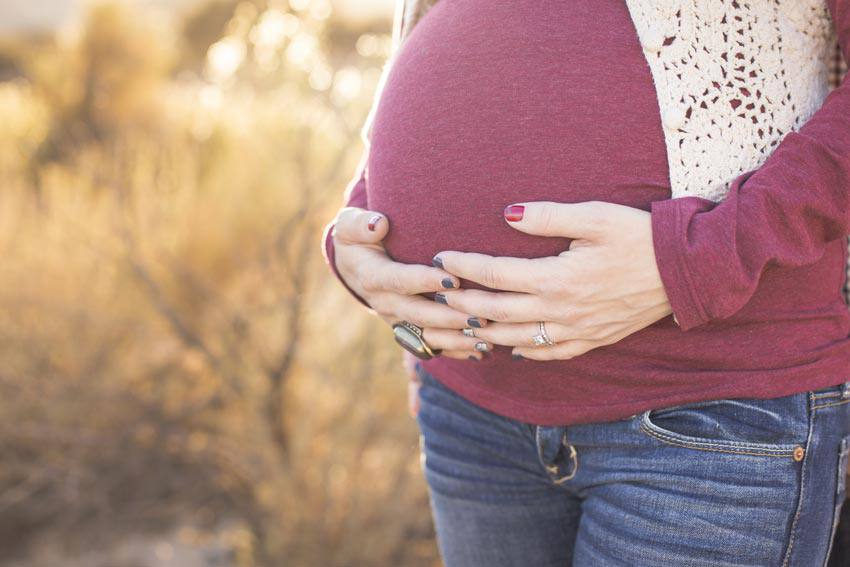Why travellers prefer Blue Cross
- Canada's #1 travel insurance brand and recognized worldwide
- Over 75 years of expertise in insurance
- $5 million travel insurance coverage, with or without deductible
- Flexible and affordable travel insurance solutions
- Free quote available online
- Travel assistance available 24/7 for any emergency, anywhere you travel

What is gestational diabetes?
Published on: October 1, 2016
There is a common misconception that pregnancy is a time when women can eat whatever they want. It’s a time to enjoy their favourite foods. However, diet and wellness is just as important, if not more so, during pregnancy.
“Most women know that they need to eat more food when they are pregnant to support their baby's growth and development but they do not always know how much more. Women are commonly told they are ‘eating for two.’ In reality, women who eat for two will eat too much and gain more weight than is needed. Usually, pregnant women only need modest increases in energy (calories) and greater increases in vitamin and mineral intake,” says Health Canada.
According to the Centers for Disease Control and Prevention, about half of women who are pregnant gain too much weight during their pregnancy, which can significantly increase their risk of getting gestational diabetes.
What is gestational diabetes?
Gestational diabetes occurs in women who are pregnant. It occurs when there is a blood glucose imbalance, and it can affect the health of the mother and the baby.
According to the Public Health Agency of Canada, gestational diabetes “occurs when hyperglycemia develops during pregnancy. Although elevated glycemic levels typically disappear following delivery, females diagnosed with gestational diabetes are at increased risk of developing type 2 diabetes within five to ten years.”
The Canadian Diabetes Association recommends that all women be screened for the condition within 28 weeks of pregnancy.
You are at greater risk of developing gestational diabetes if:
- You are overweight
- Have a higher body fat percentage
- Are older
- Have a family history of diabetes
- Have had gestational diabetes in the past
Can gestational diabetes affect the baby?
A mother having gestational diabetes can indeed affect the baby. The Canadian Diabetes Association explains:
If left undiagnosed or untreated, gestational diabetes can lead to high blood glucose (sugar) levels. This increases the risk that your baby will weigh more than 4 kg (9lbs) and will have a difficult delivery. Gestational diabetes can also increase the risk of your baby becoming overweight and developing type 2 diabetes in the future.
Symptoms
There are a number of warning signs that you could be developing gestational diabetes during your pregnancy. The symptoms include:
- Extreme thirst
- Increased urination
- Snoring and congestion
- Fatigue
Note that you can experience these symptoms without developing the condition. Getting tested is the best way to determine your status.
Prevention and treatment
Being proactive is the best way to ensure you do not develop gestational diabetes. A healthy pregnancy is best for you and for your baby. You can lower your risk factors by:
- Staying physically active during your pregnancy
- Maintaining a healthy diet
- Eating less sugar
- Keeping an eye on your weight
If you do develop gestational diabetes, managing your blood glucose levels will be very important. The good news is that diet and exercise are often effective in controlling gestational diabetes. Your doctor may prescribe you a blood glucose monitor to ensure your levels are normal, they will likely recommend a dietician to help you make changes to your diet and they may suggest that you increase your level of activity.
Other things you should know
Here are some other important things to know about gestational diabetes:
- Symptoms are often unnoticeable
- The condition usually develops in the third trimester
- Your blood glucose levels usually return to normal after delivery
- The healthier your habits are before you become pregnant, the better off you will be during your pregnancy
- You are at higher risk if you have more abdominal fat
Gestational diabetes is common and it’s treatable. It’s generally within a woman’s control whether she will develop it during pregnancy. Make healthy choices for a healthy pregnancy and a healthy baby.